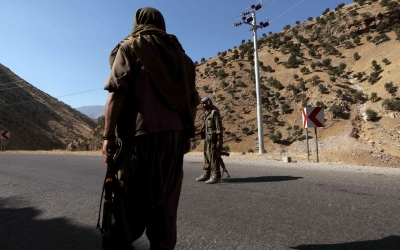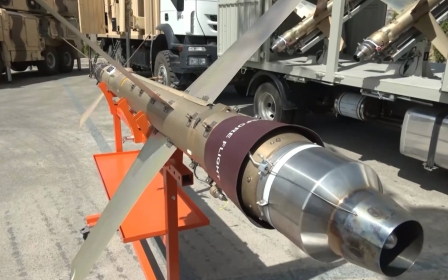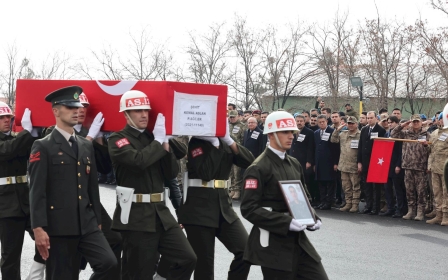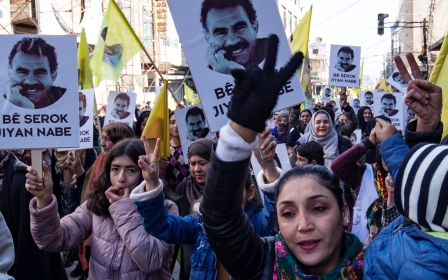PKK establishes drone workshops to fend off Turkish operations in Iraq
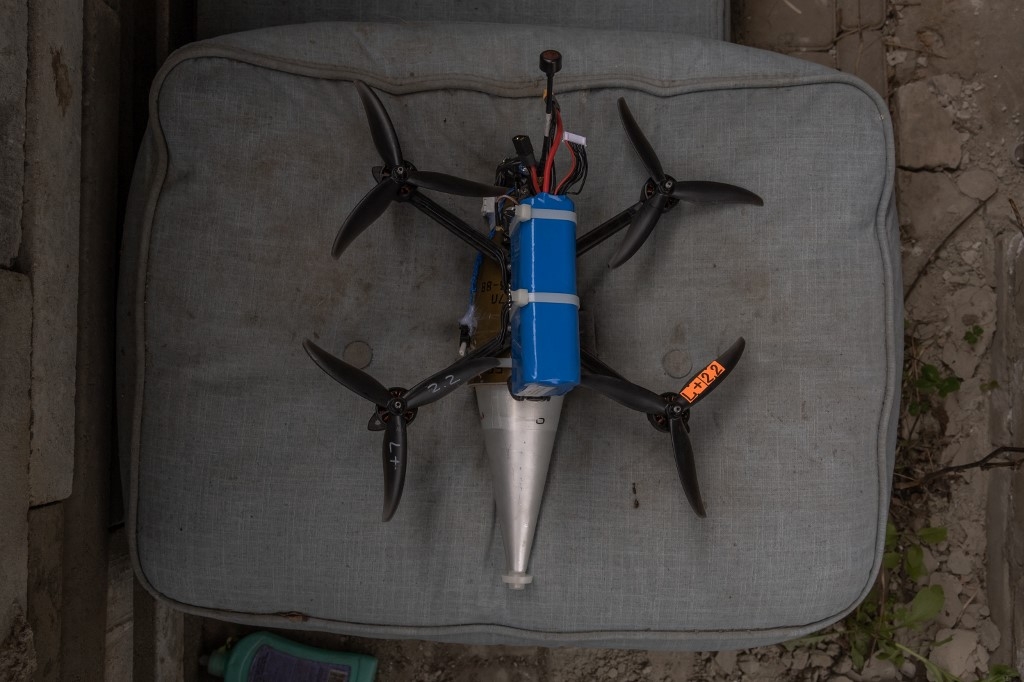
Turkish military operations in northern Iraq have prompted the Kurdistan Workers' Party (PKK) to alter its war strategy and increasingly utilise first-person view (FPV) drones.
For the past two years, Turkey has succeeded in pushing the Kurdish armed group's fighters in Iraq southwards and away from its border, using a series of operations that leverage Turkey's advanced military capabilities, such as surveillance and air superiority.
Ankara has also recently deepened its cooperation with Iraq’s Kurdistan Democratic Party (KDP), the governing party within the semi-autonomous Kurdistan region, increasing the pressure on the PKK.
Turkish ground forces have penetrated areas like Metina Mountain, which used to be a PKK stronghold.
In response, the PKK, a designated terrorist group by Turkey, the EU and the US, has shifted its battlefield tactics.
New MEE newsletter: Jerusalem Dispatch
Sign up to get the latest insights and analysis on Israel-Palestine, alongside Turkey Unpacked and other MEE newsletters
In June, the PKK conducted at least 17 FPV drone attacks against the Turkish army. Turkish security sources indicate that these attacks only resulted in minor material damage.
Sources familiar with the issue told Middle East Eye that the PKK has been using its international connections and funding networks established via Syria to set up FPV drone-manufacturing workshops in various areas between Sulaymaniyah and Qandil in northern Iraq.
The sources told MEE that the PKK has established a supply chain for materials through Ukraine and European drone markets, as well as via Georgia and Iran.
The PKK is also acquiring technology from China and Iran, the sources said, ultilising a network of foreign fighters in northeastern Syria that are among the ranks of Syrian Kurdish groups linked to the PKK.
“These preparations have been underway for approximately a year,” an Iraqi arms dealer told MEE.
N. #Iraq / #Turkey 🇮🇶🇹🇷: #PKK carried out Eight attacks with FPV Drones on Turkish Forces positions in #Kurdistan Reg Gov (#KRG).
— Alex Kennedy (@therealmindman) June 30, 2024
Group seemingly used explosive-laden X-UAV 'Talon' FPV Drones —these can be obtained from markets and used by PKK since ~2020 as surveillance UAV. pic.twitter.com/ek2o93qzCA
The Iraqi source added that the PKK is attempting to enhance drones acquired from China and various other countries by adding signal and receiver systems, and that the armed group is also planning to produce its own drone bodies and engines.
The PKK is aiming to make a significant volume of purchases of these systems, the source said, but declined to give a specific number.
The shift has had an impact on the Turkish army. The Turkish defence ministry shared a video of a Korkut anti-drone system deployed at a base in Iraq on 4 July, highlighting the measures being taken to counter these new threats.
A Turkish source familiar with the matter told MEE that the PKK is also working on developing ammunition and payloads for FPV drones.
“They have tactical targets such as striking ammunition depots near Turkish artillery positions or hitting a tank entrenched in a base area with armour-piercing ammunition,” the source said, adding that the PKK has been working on a Chinese-made drone body.
The Iraqi source did not comment on the ammunition but confirmed that efforts were underway on the Chinese drone. The source also claimed that the PKK has been receiving software support from Iran.
The Turkish source said the PKK is working to improve data transmission quality, increase the range capacity of FPV drones, and enhance tracking and striking precision by acquiring antennas and data terminals.Corroborating information obtained by MEE’s sources in Ukraine, the Turkish source said that the PKK might have access to munitions developed by Ukraine.
The source added that the PKK’s FPV drone development work is being supported by information and materials from multiple countries.
Ukraine's embassy in Ankara on Thursday denied that Ukrainian market had been used to supply drone parts to PKK.
"We emphasise that Ukraine has no interest in the supply of unmanned aerial vehicles to the PKK terrorist organisation," the embassy said. "The claims in the articles are not supported by actual evidence and do not cite reliable sources."
The embassy suggested that such allegations benefit Russian propaganda efforts to damage Turkish - Ukrainian ties. "We stand ready to work with our Turkish partners to thoroughly investigate such allegations and ensure that our common resolve to fight terrorism remains clear and unwavering," the embassy added.
A Turkish defence industry expert familiar with the matter said that while it is possible for the PKK to establish FPV drone workshops, the continuous two-way video and control communication required by FPV drones makes them more susceptible to electronic warfare.
“However, significant progress has been made in overcoming these vulnerabilities due to the Ukraine war. It is now more difficult to detect and jam FPV drones with electronic warfare,” the expert explained.
The expert added that since around 2018, the PKK has been developing small fixed-wing drones that can fly from a specific point to another and detonate without any communication.
“They have been seen for a while and most are intercepted,” the expert said, noting that the PKK's investment in this technology and the training of its fighters as operators pose significant risks to the Turkish security forces.
Editor's note: This article was updated with comments by the Ukrainian embassy in Ankara
Middle East Eye delivers independent and unrivalled coverage and analysis of the Middle East, North Africa and beyond. To learn more about republishing this content and the associated fees, please fill out this form. More about MEE can be found here.


